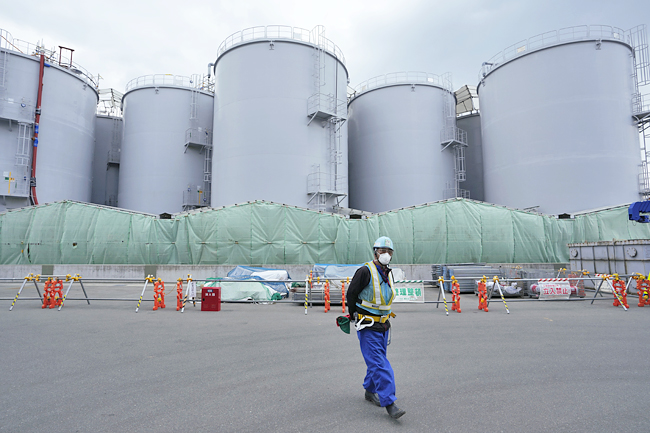TOKYO (AP) – The head of Japan’s wrecked Fukushima nuclear plant says details of the damage inside its reactors are only beginning to be known 12 years after it was hit by a massive earthquake and tsunami, making it difficult to foresee when or how its decommissioning will be completed.
The most pressing immediate task is to safely start releasing large amounts of treated but still radioactive water from the plant into sea, Akira Ono said in an interview with The Associated Press.
The March 2011 earthquake and tsunami damaged cooling systems at the Fukushima Daiichi plant, causing three reactors to melt and release large amounts of radiation.
The operator, Tokyo Electric Power Company Holdings Inc, has been able to stabilise the plant to the point where the company can better plan a decommissioning strategy, expected to be lengthy and exceedingly challenging.
“Going forward, we have to face unconceivably difficult work such as retrieving the melted debris” from inside the reactors, said Ono, who heads the plant and is president of Fukushima Daiichi Decontamination & Decommissioning Engineering Co

Earlier this year, a remote-controlled underwater vehicle successfully collected a tiny sample from inside one of the three melted reactors – only a spoonful of about 880 tons of highly radioactive melted fuel and other debris that must be safely removed and stored.
The status of the debris in the primary containment chambers of the Unit 1, 2 and 3 reactors remains largely unknown, Ono said.
Removal of melted debris is set to start in Unit 2 sometime after September this year following a nearly two-year delay. The removal of spent fuel in the Unit 1 reactor’s cooling pool is set to begin in 2027 after a 10-year delay because of the need to dismantle parts of the building damaged by hydrogen explosions.
The plant should be ready for workers to finally concentrate on removing the melted debris from the reactors after all spent fuel is taken out of the cooling pools by 2031, Ono said.
The government is maintaining its original goal of completing the plant’s decommissioning by 2051. But some experts say removing all of the melted fuel debris by then is impossible and suggest a Chernobyl-style entombment of the plant, an option that could help reduce health risks while the plant’s radioactivity gradually decreases.







